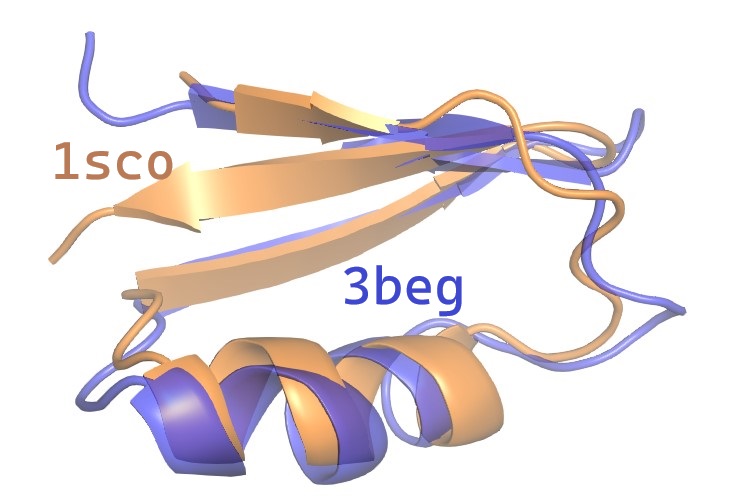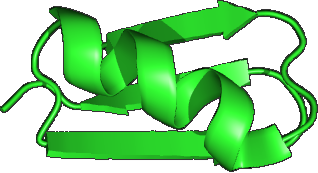Alignment quality (AQ)
From a user's perspective, AQ is similar to the TM-score : it is a number between zero and one which is designed to be higher for alignments which are more likely to be due to homology and lower if the alignment is more likely to be due to chance similarity which is unrelated to an evolutionary or functional relationship. As a very rough rule of thumb, an alignment with AQ<0.5 is probably spurious and an alignment with AQ>0.7 is likely to be due to homology. Values around AQ>0.6 should generally be considered ambiguous. For database searches, it's better to look at the E-value , especially if you're searching a large database like AFDB.
So how does Reseek calculate "AQ"? Technically it is a test statistic . The details are in the Reseek paper; roughly, it's a combination of substitution matrix scores for letters in the Mega alphabet, with gap penalties subtracted, plus LDDT , which is a measure of how close the aligned residues are in 3D space. If AQ is higher, Reseek considers the alignment better.
From a user's perspective, AQ is similar to the TM-score : it is a number between zero and one which is designed to be higher for alignments which are more likely to be due to homology and lower if the alignment is more likely to be due to chance similarity which is unrelated to an evolutionary or functional relationship. As a very rough rule of thumb, an alignment with AQ<0.5 is probably spurious and an alignment with AQ>0.7 is likely to be due to homology. Values around AQ>0.6 should generally be considered ambiguous. For database searches, it's better to look at the E-value , especially if you're searching a large database like AFDB.
So how does Reseek calculate "AQ"? Technically it is a test statistic . The details are in the Reseek paper; roughly, it's a combination of substitution matrix scores for letters in the Mega alphabet, with gap penalties subtracted, plus LDDT , which is a measure of how close the aligned residues are in 3D space. If AQ is higher, Reseek considers the alignment better.


